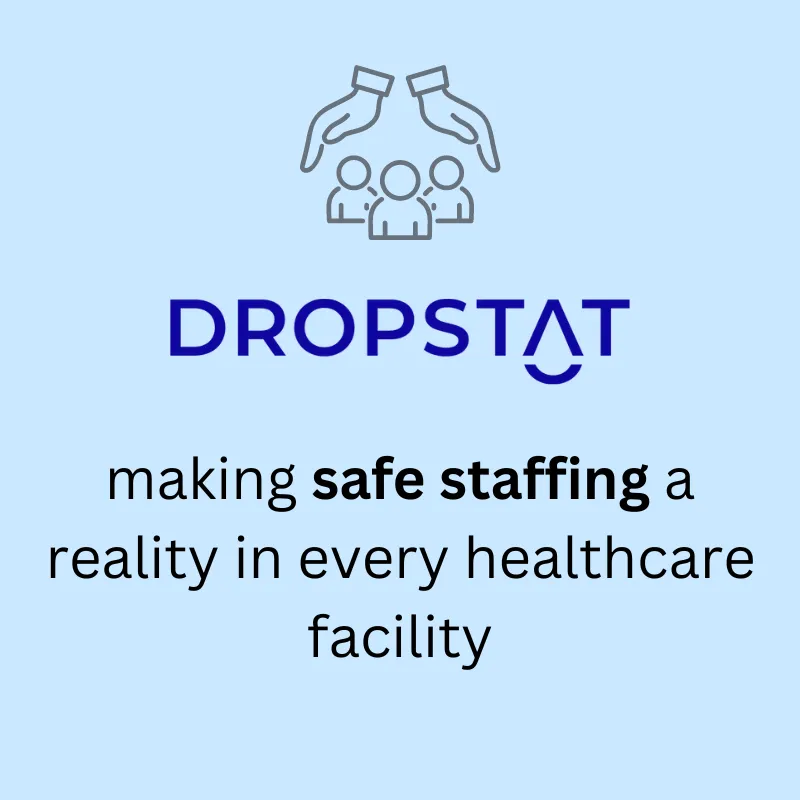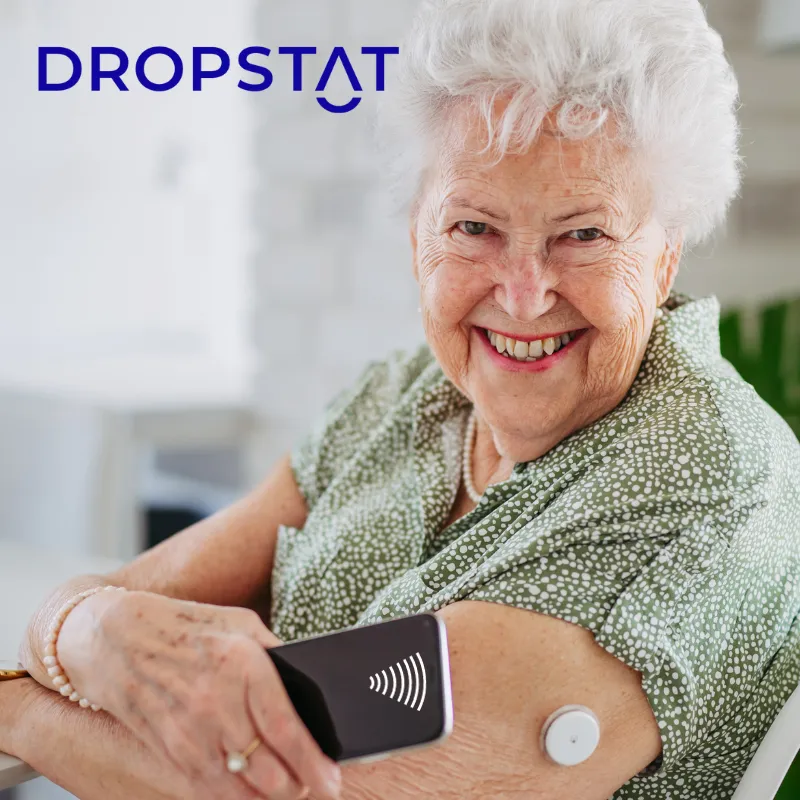The nascent addition of digital therapeutics to the nursing toolkit leads us to hope for a resolution to some of the issues in the nursing work environment. Digital therapeutics takes nursing up a level by adding flexibility in time, location, and reach to patients.
What is digital therapeutics (DTx)?
Digital therapeutics refers to regulated, evidence-based therapeutic intervention using high-quality health software programs as medical devices to prevent, manage, and treat medical disorders or diseases. The accepted digital therapeutics definition is the DTx meaning provided by the Digital Therapeutics Alliance (DTA).
Healthcare is very prominent in the digital revolution. IQVIA reports in its 2021 Digital Health Trends that an average of 250 health apps are hitting the market daily. With the development of so many healthcare products, the DTA had to create a core definition for digital health apps, digital health solutions, and other digiceuticals.
Examples of health-software programs as medical devices are:
- a digital behavior platform for weight loss
- an application for treating substance abuse disorder and
- a platform that is a chronic disease management tool
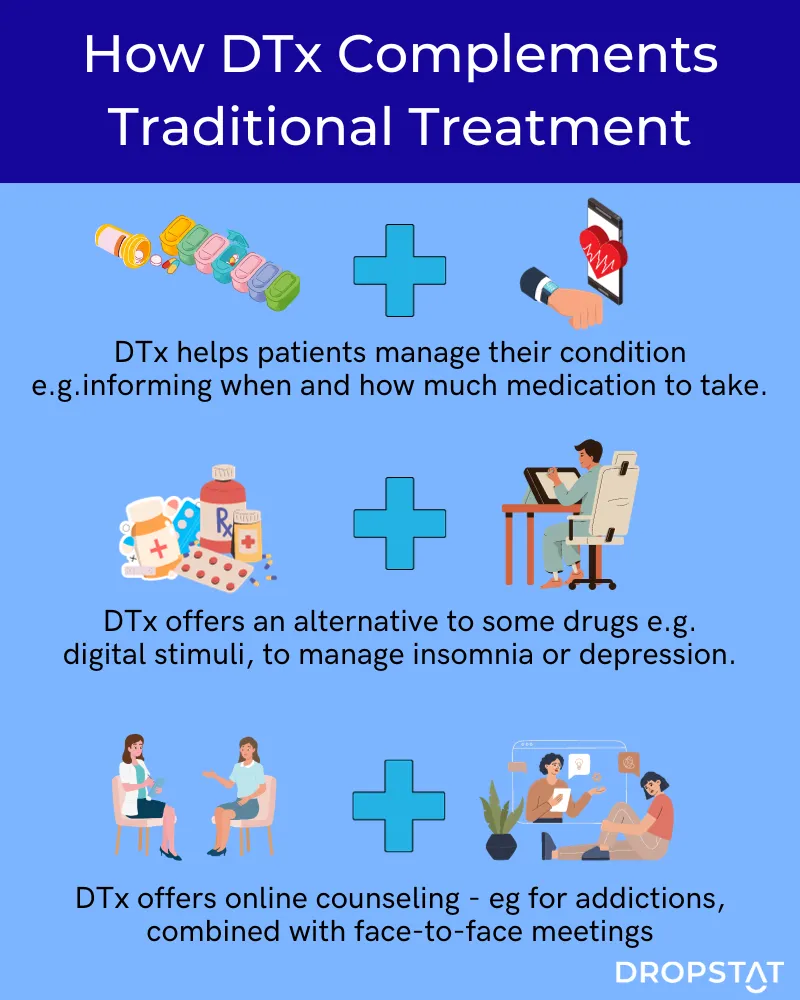
How can digital therapeutics best contribute to healthcare?
Digital therapeutics can best contribute to healthcare by:
- Complementing traditional healthcare practice
- Being used alongside approved medication as part of improving the patient journey
- To provide system-wide solutions to documented problems (such as long waiting times for therapies, understaffing, or cost of healthcare call-in systems) in healthcare, directly or indirectly.
12 benefits of DTx for patients, nurses, and healthcare facilities
For patients, DTx offers:
- Therapy is available directly to patients, circumventing lengthy approval processes and shortages of therapists.
- DTx offers behavioral and cognitive interventions in place of certain conventional medicines, reducing drug toxicity.
- Therapy is delivered via smartphones or wearable devices, making it more accessible and mobile than traditional medicine and avoiding shortages of locations that offer therapy.
- Improved patient outcomes – McKinsey & Company report that digital disease management can bring about a 50% reduction in 30-day hospital readmission rates for patients.
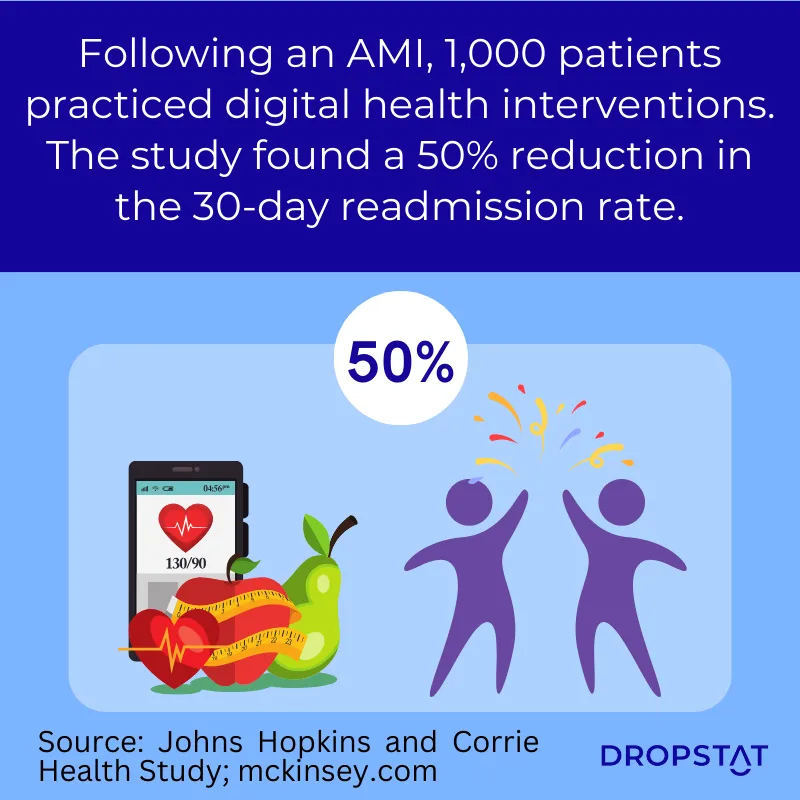
For nurses, DTx offers:
- Through effectively improving patient care coordination, DTx could reduce hospital readmissions while easing the burden on nurses.
- Digital communication, digital health records, and remote patient monitoring enable more tools for post-discharge patient care while avoiding the impacts of staff shortages.
- Patients can better manage their medicinal adherence, recovery process, and health.
- Guide more patients in less time through immersive environments for digital therapy, including digital physical therapy, digital speech therapy, and digital mental health tools.
For healthcare facilities, DTx offers:
- When healthcare facilities partner with digital health companies, there is a new avenue for digital health revenue.
- A digital therapy machine can work longer hours at less cost than human therapists.
- Healthcare facility CEOs can earn a better reputation for the facility by involving nurses and other healthcare staff in the latest technological developments.
- Healthcare delivery providers could expand their workforce digitally and leverage their reputation to become a trusted center for regulated DTx and prescription digital therapeutics. Healthcare consumers would trust the supply of digital health products from recognized healthcare providers more than from unrecognized online suppliers.
The barriers to digital therapy
Disadvantages of DTx that act as barriers to the adoption of digital therapy ( Khirasaria et al. 2020):
- There are difficulties in adopting new technology. These include fear of change in existing nursing staff, fear of losing jobs, difficulty adapting skills and regular care strategies, and not believing that new technology can replace old methodologies.
- There is a shortage of funding for developing and adopting new technology and teaching patients and practitioners how to use it.
- There are challenges in accepting change for practitioners and clinicians after enforcing medicinal solutions as the sole solution for decades or longer.
- There are potential disadvantages to the health community in general, such as compromised data privacy and cybersecurity issues, complications in legal liabilities, the potential for mass error occurrences, and a lack of regulatory security against false claims of success or accuracy of diagnosis.
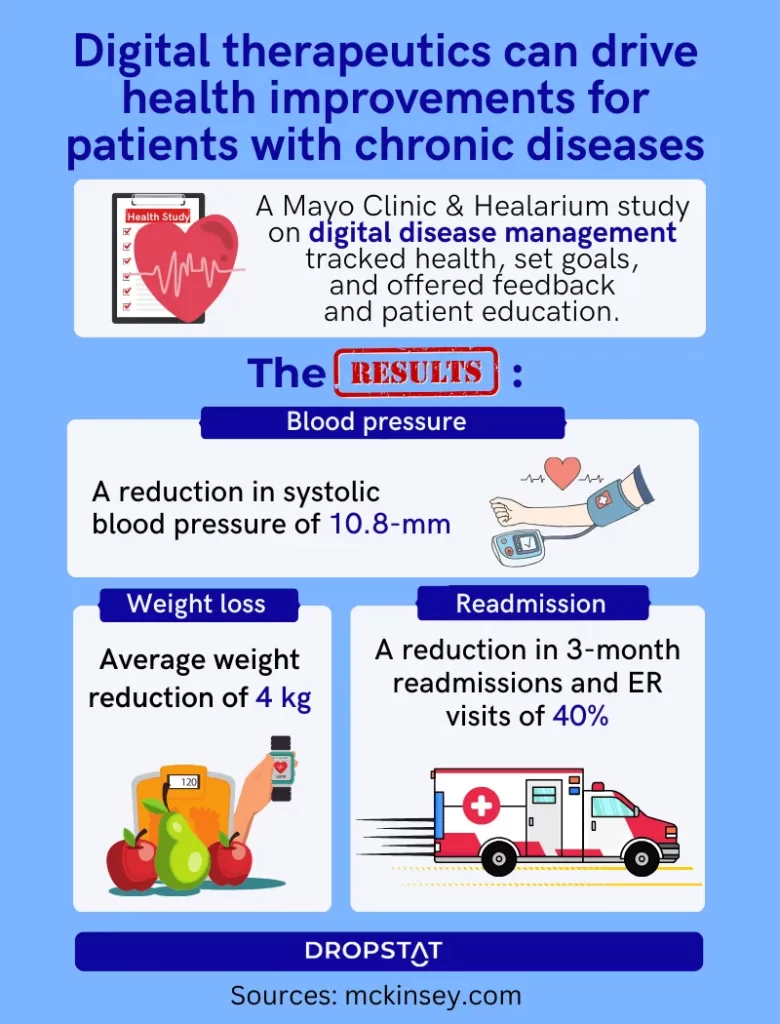
The outlook for DTx in the future
The stakeholders who push digital therapeutics forward envision the development of DTx and the changes it can help bring to healthcare. Some of these points could help resolve the nursing shortage due to post-COVID-19 early retirement and baby-boomer generation retirements.
- The institution of more reimbursement codes in Medicare and for DTx practitioners, which is subject to FDA approval for prescription digital therapeutics (PDT).
- The sponsoring of more long-term studies to evaluate the effectiveness and cost-effectiveness of TDx.
- The generation of more knowledge in healthcare will enable DTx to complement traditional medicine for greater treatment success.
- The development of various therapies and innovative training of nurses to teach patients how to use software as medical devices (SaMD).
- Global advances in health data protection and cybersecurity will ensure DTx is a safe area in medicine.
- Creating more jobs for digitally capable younger nurses will offer patients more digital therapy and more telehealth nursing that remotely delivers nursing care.
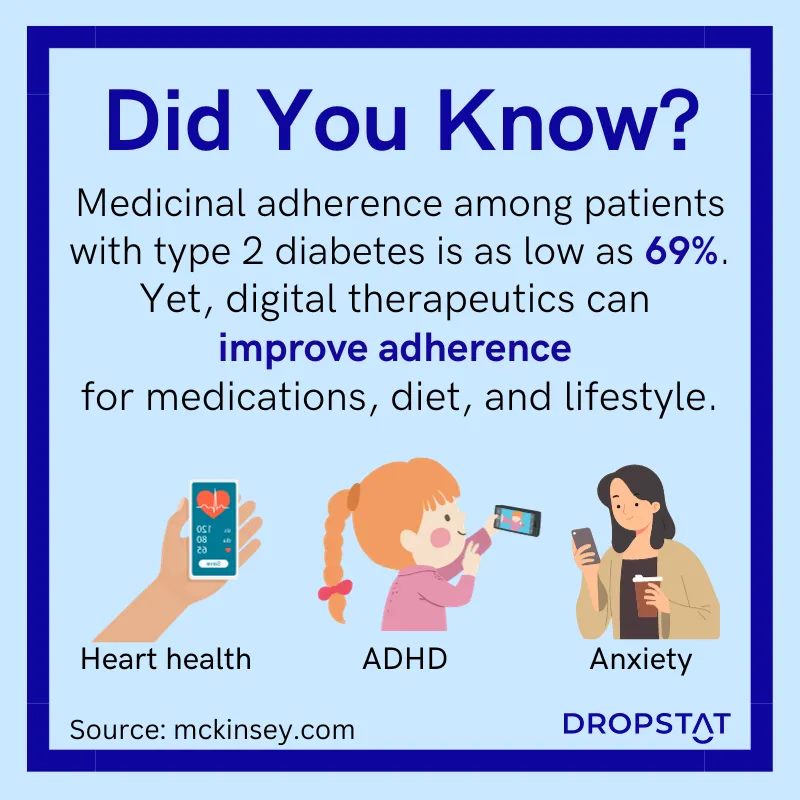
How Dropstat’s scheduling app complements digital health solutions
Digital nurses will be able to help more patients by using DTx when healthcare facilities partner with digital health companies. As digital health and wellness become more accepted among practitioners and patients, practitioners will be capable of offering patients more digital health solutions. Digital therapeutics will gradually feature more and more to safely complement traditional medicine as prescription digital therapeutics (PDT). Patients will learn to use digital health solutions for preventative healthcare, to monitor their health journeys, and to comply with discharge instructions. There is room to hope that these solutions will reduce patient readmissions.
Dropstat is an AI-powered nurse and medical staff scheduling app. It allows nurse schedulers to build nurse staffing schedules up to 2 months in advance, subject to managerially-approved change. Dropstat created the nurse scheduling app to help managers through effective staffing; the app offers robust predictive analysis, which allows healthcare facilities to understand and anticipate staffing needs. Many advancements in healthcare through DTx will rely on the structure of a functioning and reliable healthcare system. Healthcare will still need nurse scheduling, even if the nursing work environment becomes a lot more digital. By making sure nurses have appropriate work schedules, Dropstat complements digital therapeutics.
Schedule a demo with Dropstat to see tomorrow in action today with Dropstat’s predictive analytics nurse scheduling app.
